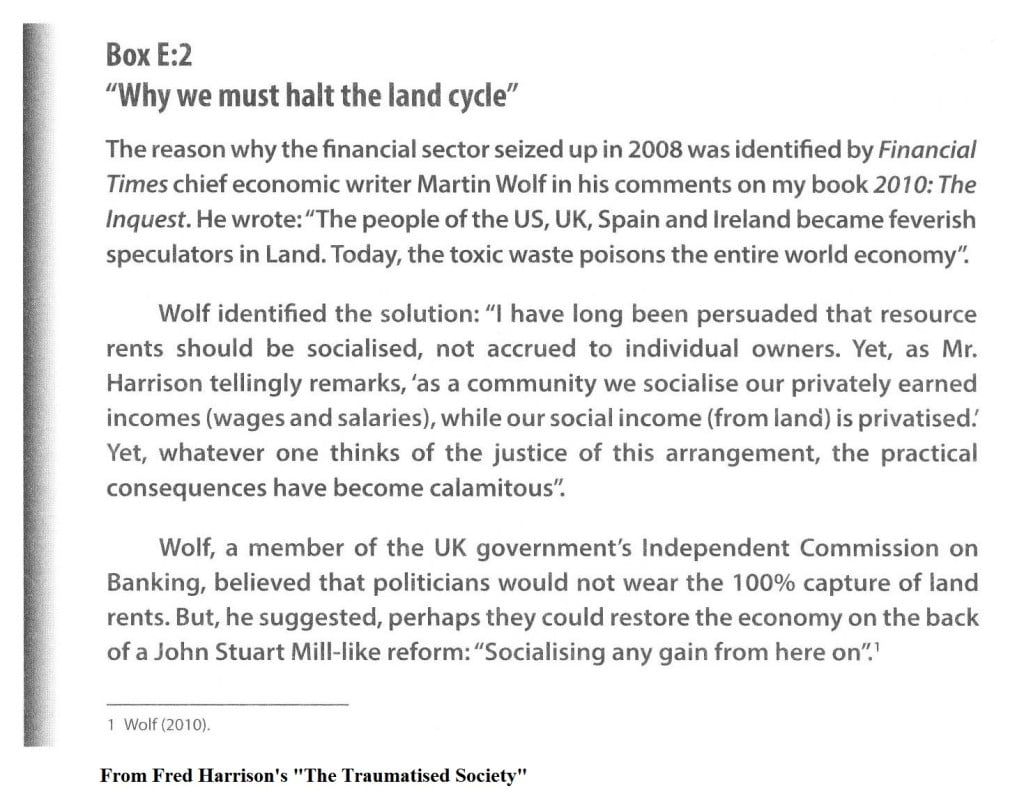With Ben Bernanke about to expound today on how his plans to save the American economy are proceeding, I thought it might be the appropriate time to resurrect an excellent analytical piece written by Al Date in 1998. It’s a clear exposition about Japanese banks’ changing their emphasis from supporting the real economy to inflating real estate bubbles …. and how the Japanese people have paid the penalty for the last twenty-three years.
As he wrote the piece, I wonder whether Al Date realised the US had begun to inflate the greatest real estate bubble in its history?
Anyways, listen up, Chairman Ben. There are lessons in this for you.
___________________________
WHAT HAPPENED TO JAPAN
Al Date (1998)
During the 1980s, Japan was seen as a veritable, and venerable economic miracle. Many Americans were convinced that we had been permanently overtaken by Japan, competitively, and they sought to emulate Japanese success by instituting MITI-style govt-business collusion.
Fortunately, most of these efforts were rebuffed, and America has done fairly well with comparatively free trade, despite unexciting growth rates. There is no denying that the US Dollar has become the pre-eminent currency of the global economy. Meanwhile, Japan has gotten in big trouble.
As it turns out, Japan was the “front domino” of the Asian economies; the first to fall. While other Asian nations continued to grow at double-digit rates well into the 1990’s, Japan suffered a stock market collapse, zero growth, and a prolonged recession which has even resisted the stimulus of lending rates pegged at ~0%! Imagine free money! And still no capital spending boom!
Rather than being pulled out of this recession by its local trading partners, the Japanese Plague has spread. It has spread to free-wheeling Thailand, which was the most “laissez faire” of the group. It has spread to Indonesia, which was the most corrupt and centrally-planned. It has spread to South Korea, which was somewhere “in between.”
The Japanese Plague is not a function of central-planning vs. laissez faire govt. It IS a function of incredibly over-valued land, land driven up by banks (mostly govt-supported) eager to lend billions of bhat, yen and dollars to real estate speculators.
It is common knowledge that when the Japanese economy was at its peak, the value of Tokyo land exceeded that of the entire United States. This is an impressive statistic, but consider the consequences. Since land is needed by the productive economy, stratospheric land prices make local economic expansion impossible to afford… not to mention what it does to the average working person, whose family is crammed into living quarters not much larger than the space allotted for convicts.
Japan’s banking system created the greatest real estate boom of the 20th Century, probably acting on the advise of influential western economists who equate high land prices to “capital accumulation.” Japan’s banks are now holding trillions of yen of bad loans on land-value which has simply disappeared.
Yet Japanese land is still overvalued, threatening to undermine even MORE loans. That is why the Japanese Govt has done everything in its power to stabilize land prices, even at high levels–and in spite of the cost of ongoing economic malaise. They figure that malaise is better than collapse. And that is the Hobson’s Choice which they have become stuck with. But it was not always thus.
During the 1970’s, the Japanese invested heavily in plant and equipment, and perfected production processes using the Statistical Quality Control taught by Deming. This success-formula was used in many industries, from automobiles to semiconductors, and it forced the rest of the world to follow suit–while making Japan an economic powerhouse. But this hard-earned prosperity and economic power was not enough for some.
Within the ranks of the financiers and govt officials there was a push for financial deregulation which would allow high-priced real estate (land) to serve as collateral for loans. World-class manufacturing–which requires a lot of hard work amidst brutal competition, and which is a true engine of wealth–was taken for granted. Many sought a get-rich-quicker scheme which, it was said, would spin-off even more money for “investment.”
Once this bubble got rolling, very little of this money went into the productive economy. Instead, it went into driving real estate prices to the sky. But the only way you can drive real estate to the sky, is to pour your wealth into the ground. And that is literally what Japanese “investors” did. This created the illusion of phenomenal wealth, as Japanese real estate magnates rapidly became the wealthiest individuals in the world–on paper. But this kind of wealth does not trickle down. It dries up.
“Location” is a passive element; it does not produce anything without some expenditure of labor and capital. Driving up the price of Japanese locations meant that there was less and less money left over for investment in jobs and equipment. And when the real estate bubble burst, and the banks began to implode, there was no money for ANY kind of new investment. Accordingly, the latest predictions are that the Japanese economy will actually
shrink during 1998.
SOME ASIAN TIGERS FOLLOW JAPAN
Parts of Asia have followed in Japan’s footsteps, except that their real estate bubbles have been primarily financed by foreign money as opposed to internally (by Japan’s high savings-rate).
Throughout Asia, foreign money has been pouring in over the last decade to take advantage of high growth rates. The press dubbed these nations the “Asian Tigers,” and billions of investment dollars poured in. Some of this money was invested in plant and equipment, which created many real jobs, a rising middle class, and prosperity in Eastern Asia. But eventually, it became more difficult to invest the money wisely, greed set in, and money managers began “pouring it in the ground,” financing speculative real estate ventures. Thus, their fate was sealed.
Thailand was the first to collapse, triggered by currency speculators. Needless to say, the fundamentals have to be pretty weak if currency speculators can cause a 50% decline in a currency and touch off a depression. At the time (Summer of 1997) some western pundits blamed it on Thailand’s “laissez faire” investment policies, and pointed with some pride to the “continued stability” of Indonesia and South Korea, which were more “centrally-planned” by their governments. (These laughable articles can still be found on the internet by searching for ASIAN CRISIS.)
Of course, within months, South Korea and Indonesia went down the same rat-hole as Thailand, in spite of all their govt intervention in the economy. The press called it the spread of “bhat-ulism,” but it is simply the consequence of an implosion of excessive land-values, repeating like the echo of an avalanche in Japan.
As this goes to press, the debate revolves around the conditions that the IMF should put on a nation with corrupt leadership when it gives it billions of dollars to prevent the inevitable collapse of land values.
But Hong Kong and Taiwan have survived relatively unscathed.
WHY ARE HONG KONG AND TAIWAN EXEMPT?
Hong Kong and Taiwan have endured assaults on their currencies, and panics in their stock markets, but their economies are intact, even showing good growth in Q1 1998. How can this be?
The answer is quite simple. Taiwan and Hong Kong tax land values fairly strongly, thus discouraging investment in real estate that is not warranted by actual economic conditions, conservatively measured. As a result, they have a very stable source of public revenue, plenty of reserves to defend their currencies or to provide infrastructure–and the ongoing production incentives of low taxation on labor and capital.
THE LESSON
Rising land prices (commonly thought of as “home-appreciation” in the USA) are seen as a sign of prosperity, but they gradually sow the seeds of economic reversal. Every recession in the USA has been preceded by a “land-boom,” and accompanied by a “land-bust,” as documented by Mason Gaffney, PhD.
This bone-crunching volatility is NOT a necessary part of the free market! The way to achieve stable growth is to KEEP LAND AVAILABLE TO THE PRODUCTIVE MARKET ECONOMY, by keeping it from being used for speculative purposes.
Land value taxation, or the community collection of land rent, has the effect of removing the speculative premiums from land-locations. Land simply “rents” for its current use-value, as determined by market forces. This allows the un-taxing of the rest of the economy, such as wages, sales and income, which has the effect of incentivizing everyone to make money by working and investing in plant and equipment.
The solution to the Asian Crisis is not the funneling of billions of IMF dollars in to support the fortunes of corrupt officials which are tied up in speculative land-values.
What is needed is a permanent tax-shift OFF of the workers and capitalists, and onto the land-holders.
– Al Date








